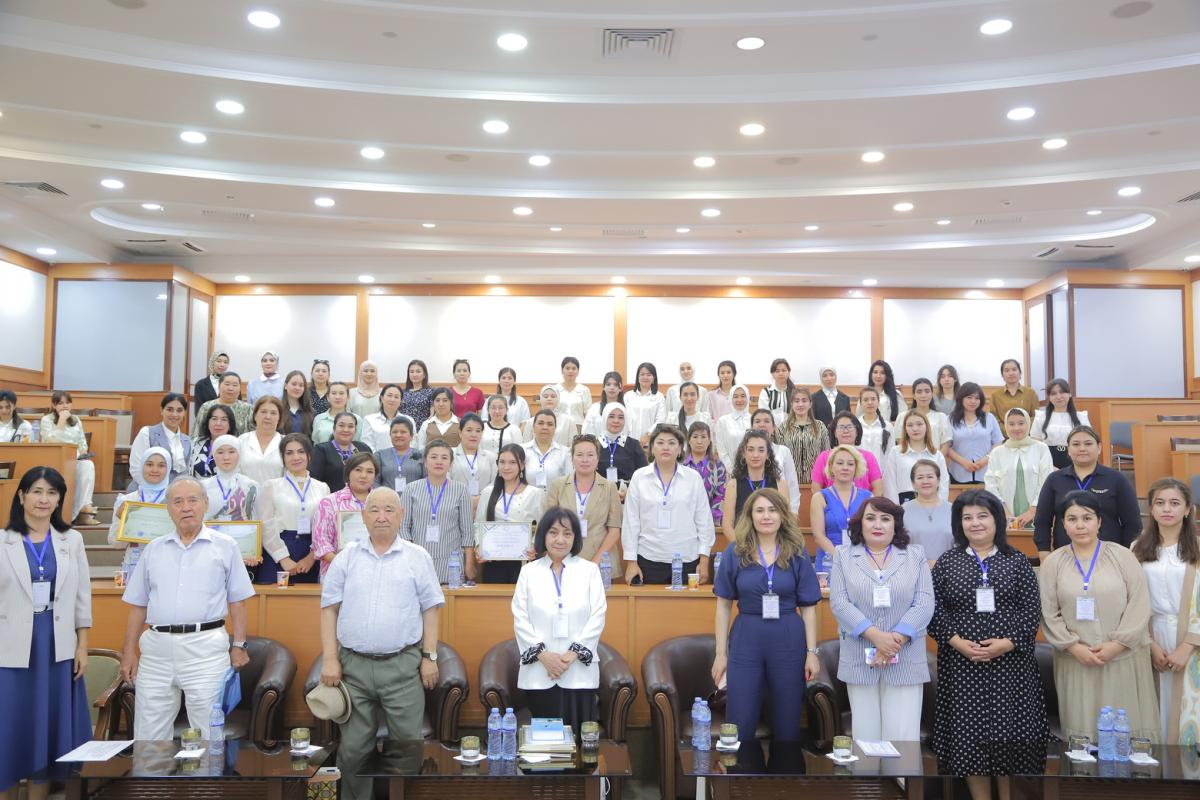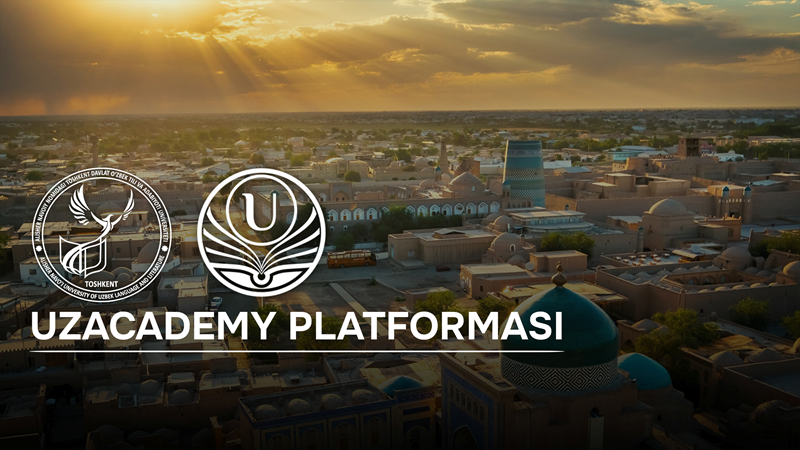TSUULL OUTREACH PROJECTS: KNOWLEDGE FOR ALL
TSUULL promotes the principles of openness and collaboration in the fields of education, language, and culture at both national and international levels. The university strives to enhance its social impact by sharing its academic expertise and pedagogical experience with the wider community, including its alumni network and the local community.
Through open lectures, online platforms, social initiatives, and partnership programs, the university fosters knowledge exchange with diverse audiences, supports the professional growth of educators and young specialists, and introduces innovative approaches aimed at improving the quality of education. These initiatives also contribute to empowering displaced people and refugees by expanding access to learning opportunities and social integration.
Open Dialogue, New Ideas, Sustainable Future: The “Public Talk” Program at TSUULL serves to foster a culture of open dialogue among youth, experts, and the wider community. Through this initiative, the university has created an active platform for exchanging ideas in the fields of education, culture, social responsibility, and sustainable development.
The “Public Talk” sessions address topics related to the Sustainable Development Goals (SDGs) – including the importance of water resources, quality education, gender equality, and economic opportunities. These discussions broaden young people’s global outlook and encourage their engagement with pressing development issues. To date, dozens of sessions have been held, bringing together hundreds of students, scholars, journalists, and representatives of international organizations. The “Public Talk” initiative highlights the university’s role as an open, active, and socially responsible academic community. Registration for the Upcoming Public talk
Community Engagement and Local Initiatives: As a Deputy of the Tashkent City Council of People’s Deputies, the Rector of the University, Academician Shuhrat Sirojiddinov, works directly with nearly 30,000 residents across five settlements in the Yangihayot district. He actively studies local issues related to education, social infrastructure, and employment, and advances initiatives aimed at improving living standards and young people’s access to education.
Within his deputy activities, more than 20 educational projects and over 10 social initiatives have been implemented, focusing on creating inclusive conditions for people with limited opportunities and expanding cooperation with schools and learning centers. These ongoing efforts contribute to enhancing community well-being and promoting equitable access to quality education.
Connecting with Our Compatriots through Knowledge and Language
Guided by its mission, TSUULL consistently works to enhance the global standing of the Uzbek language, advance its teaching methodologies, and strengthen academic and cultural ties with compatriots abroad. In cooperation with the “Vatandoshlar” Public Foundation and other partner organizations, the university implements professional development and methodological support programs for Uzbek language teachers working in Kazakhstan, Kyrgyzstan, and Tajikistan. These initiatives help build the capacity of Uzbek-language educational institutions abroad and expand teachers’ skills in applying modern, innovative teaching approaches, thereby contributing to the promotion of linguistic and cultural heritage beyond national borders.

Uzacademy – A Platform for Open Knowledge and Global Collaboration
“Uzacademy” is a digital learning ecosystem developed by Alisher Navoiy Tashkent State University of the Uzbek Language and Literature, serving the principles of SDG 4 (Quality Education) and SDG 17 (Partnerships for the Goals). The platform provides learners around the world with free, interactive, and structured opportunities to study the Uzbek language. Through Uzacademy, users not only learn the Uzbek language but also explore Uzbekistan’s history, literature, art, and cultural values. The courses are designed in accordance with CEFR international standards (levels A1–C1) and feature digital content produced at the EdSMART 4K PRO studio. In October 2025, the platform was integrated into the University of Oxford’s educational system, marking a significant milestone in strengthening Uzbekistan’s educational diplomacy and international cultural cooperation.
Go to the Platform
What is Uzacademy?

Collaboration with Public Schools
Through close collaboration with the general education system, TSUULL contributes to improving the quality of education. The university provides academic and methodological support to several schools — including School No. 319 and School No. 144 in Yakkasaroy District, as well as School No. 220 and School No. 117 in Yunusobod District. These partner schools serve a total of 4,800 students and employ more than 250 teachers. In addition, School No. 46 in Olmazor District has been designated as the university’s institutional partner school, where over 1,000 students are currently enrolled.
University specialists have conducted more than 30 open lessons and training sessions, along with nearly 10 methodological seminars. Within this cooperation, systematic efforts are being made to enhance teachers’ professional development, foster students’ creative potential, and introduce modern educational approaches into the school environment. The university also regularly organizes Open Doors Days, Career Days, and similar events for school students, strengthening the connection between secondary and higher education.
Human Capital Development
Under SDG 4 (Quality Education) and SDG 16 (Peace, Justice and Strong Institutions), TSUULL is scaling practice-based psychological training to strengthen institutional resilience, human rights culture and social well-being. In partnership with the Ministry of Defense, more than 150 officers have completed 14-day professional development programs focused on psychological preparedness, ethical communication and leadership. Cooperation with the Department of Corrections under the MIA has resulted in over 50 psychologists receiving a 40-hour Penitentiary Psychology qualification, delivered across three training groups totaling 120 hours and introducing rehabilitation-oriented approaches.
In 2025, applied learning for future specialists expanded significantly: 50 second-year and more than 50 third-year Psychology Department students completed practical training cycles, and in June alone carried out internships across over ten state and non-state organizations. These included 6 students placed at the Department of Corrections and 5 at the Anti-Human Trafficking Agency — strengthening professional exposure to socially sensitive sectors. The university also launched MAC-therapy, Gestalt therapy, supervision and intervision platforms, creating a continuous learning ecosystem for students and practitioners. Altogether, more than 200 military personnel, law-enforcement psychologists and emerging specialists have benefited, reinforcing the university’s contribution to human capital development and inclusive, sustainable institutions.
Special Training Courses for Military Personnel
Training Programs in Penitentiary Psychology
The university encourages small-scale social projects that help improve local community life. Students and faculty can propose practical ideas and receive support to implement activities that create a positive social impact.
TSUULL organizes volunteer groups that participate in environmental, cultural, and educational activities. These initiatives help students build teamwork, communication, and leadership skills while contributing to the community.
The university promotes modern, tech-driven solutions to community needs. Digital tools, creative platforms, and student-led prototypes are developed to address real social challenges in new and effective ways.
Public events dedicated to literature, culture, history, and the arts are held regularly. These gatherings help strengthen cultural awareness and provide open access to meaningful educational experiences.
Workshops and short programs are offered to help young people develop confidence, initiative, and practical skills. These activities support personal growth and encourage active participation in community life.
Project labs invite students, educators, and local partners to work together on creative ideas. These sessions foster collaboration, problem-solving, and shared responsibility for improving community well-being.